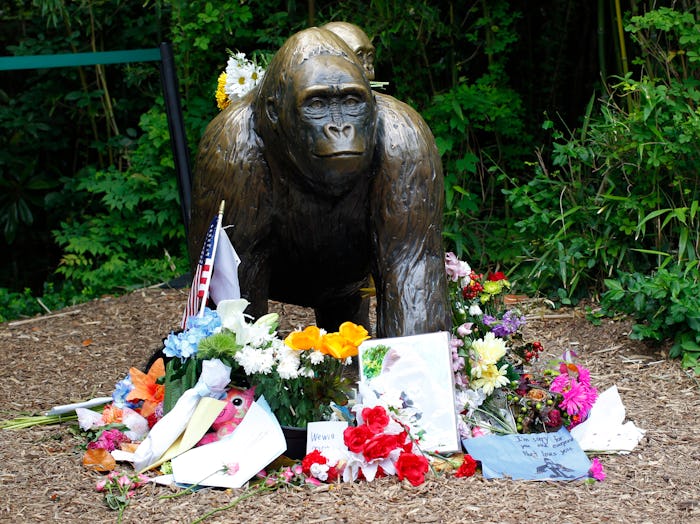News

How The Alligator & Gorilla Incidents Brought Out The Worst In Parent Shamers
These past few weeks have been incredibly tragic for parents with young children who have a fear of the unknown. In two separate attacks, in two different places in the country, two moms were faced with two separate horrors that they had to deal with — but also had to face the public's scrutiny because of it. I could never imagine being in their shoes — and it is sad to see how the alligator & gorilla incidents brought out the worst in parent shamers.
The first incident occurred at the Cincinnati Zoo in late May, when a 3-year-old boy crawled through protective barriers and went into the zoo's gorilla habitat, where he was dragged around by the gorilla named Harambe. The gorilla was then killed by zoo officials who reasonably thought the child's life was at risk.
The second incident occurred most recently when a 2-year-old boy was wading in the waters of a man-made lagoon behind a hotel at Walt Disney World. An alligator pulled the little boy into the water, and authorities reported that the alligator likely drowned the little boy, whose body was found the next day.
These incidents, which were incredibly tragic for all parties involved, incited many comments from all over the internet and brought out the absolute worst in parent shamers.
People from all over the world took to social media outlets to express their outrage over the accidents — whether it was outrage towards the shooting of Harambe or the disappointment in allowing alligators to be on Disney property. People wondered where the boy's parents were, and in some extreme instances, wished harm on the parents themselves. But what the parent shaming towards both boy's parents really say that the parents did not try to save their children or protect them from harm's way — when neither sets of parents could predict exactly what would happen to their children in those moments.
According to NPR, this parent shaming is an example of mob mentality — deflecting attention from our own flaws in parenting and focusing it somewhere else. Furthermore, according to developmental biologist, Emily Willingham,
People want to 'other' parents who find themselves in the national gaze after a tragedy — it happens every time, facilitated by social media to full-throated howling. It's partly a defensive way to rationalize how it will never, ever happen to you and partly because apparently we're all a pack of judgmental goons.
Therefore, it was easy for parent shamers to shame the parents because they were not there in those difficult situations. This arm chair mentality, combined with the reactions and emotions they had after hearing what happened, made a recipe for some fierce parent shaming that needs to be stopped. There is no such thing as a "perfect parent" and being quick to criticize parents who had just witnessed tragedies didn't help.
Instead of placing the blame on other people or placing the blame on the facilities, we needed and still need to support the families who had to witness and go through these horrific incidents. We can't control everything, and these events proved just that. But we can come together support those who need it the most during accidents like these.
The gorilla and alligator incidents may have brought out the worst in parent shamers but they also brought attention to parent shaming. No one is perfect and there is no such thing as the perfect parent.